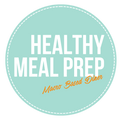What Is Protein and Why Do We Need It?

What Is Protein? Why Do We Need It?
Understanding Protein
Protein is often hailed as the building block of life, present in every cell of our bodies. It's essential for growth, repair, and the maintenance of good health. Proteins are made up of amino acids, some of which are known as 'essential amino acids' because our bodies cannot produce them—they must be obtained from our diet.
Sources of Protein
Protein can be found across a wide range of foods, offering both animal and plant-based options:
-
Animal-Based Proteins: These include meat, fish, eggs, and dairy products. For instance, chicken breast is renowned for its high protein content, offering about 31 grams of protein per 100 grams. Steak and pork are also excellent sources, with steak providing approximately 25 grams of protein per 100 grams, and pork loin offering around 26 grams of protein per 100 grams.
-
Plant-Based Proteins: These are essential for vegetarians and vegans, found in legumes, nuts, seeds, and some grains. Lentils, for example, pack about 9 grams of protein per 100 grams, while quinoa offers around 4 grams of protein per 100 grams.
The Benefits of Protein
Protein's benefits extend far beyond muscle building. Here are several key advantages:
- Supports Muscle Growth and Repair: Essential for athletes and anyone engaging in regular physical activity.
- Aids in Weight Management: High-protein diets can enhance satiety, helping to reduce overall calorie intake.
- Boosts Metabolism: The body expends more energy digesting protein compared to carbs and fats.
- Strengthens Bones: Adequate protein intake is linked to improved bone health, reducing the risk of osteoporosis.
Challenges and Considerations
While protein is indispensable, it's crucial to strike the right balance:
- Overconsumption: Excess protein, particularly from animal sources, can strain kidneys and may lead to increased risk of conditions like heart disease.
- Quality Over Quantity: Opting for lean, high-quality protein sources and balancing animal and plant proteins can mitigate health risks.
- Dietary Restrictions: Vegetarians and vegans need to ensure they're getting all essential amino acids through a varied plant-based diet.
Incorporating Protein into Your Diet
At Macro Based Diner, we're committed to providing balanced, nutritious meals that cater to your protein needs, whether you're aiming for weight loss, muscle gain, or simply maintaining a healthy lifestyle. Our meals are designed to offer the perfect blend of taste and nutritional value, ensuring you're fuelled for whatever your day holds.
Conclusion
Protein is more than just a macronutrient; it's a vital component of a healthy, balanced diet. Understanding the types of protein, their sources, and how to incorporate them into your diet can significantly impact your health and well-being. Remember, the key to a nutritious diet is balance, variety, and choosing high-quality sources of protein.
